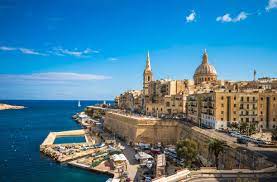The purpose of this article is to provide information about Malta’s entry requirements for UK citizens. With the ongoing COVID-19 pandemic and the introduction of new travel restrictions and guidelines, it is important for travelers to be aware of the entry requirements of their destination country. A lot of people wonder about what are the entry requirements for Malta.
UK citizens traveling to Malta must comply with certain entry requirements, including providing proof of vaccination, a negative COVID-19 test result, or proof of recovery from COVID-19. These requirements may change based on the current situation and travelers should keep themselves updated before planning their trip. What are the entrance requirements for Malta? Is it safe to travel to Malta right now? These are popular questions as the summer is getting closer.
This article will provide a detailed overview of Malta’s entry requirements for UK citizens, including information on the accepted types of COVID-19 tests, the documentation required for proof of vaccination or recovery, and any quarantine measures that may be in place. Additionally, it will cover some frequently asked questions related to travel to Malta during the pandemic.
Do You Need a Visa to Visit Malta?

UK citizens can travel to Malta visa-free for tourism or business trips up to 90 days within any 180-day period for tourism or other purposes, though if they plan on remaining longer they may require an extension or work permit application.
The Schengen Area consists of 26 European countries which have abolished passport and border controls at their mutual borders, meaning travelers may travel freely within it without showing their passports or being subject to border checks. When traveling into this zone however, non-EU nationals including UK residents must comply with visa-free entry regulations such as meeting a 90 day limit within every 180 day period as set out in Schengen visa regulations; before planning their trips. It is wise for UK nationals to check latest updates regarding travel requirements before booking any visit abroad such as Malta or another Schengen country before planning trips abroad.
Passport Requirements for Malta
UK citizens traveling to Malta must have a valid passport. The passport must be valid for at least three months beyond the intended period of stay in Malta. UK citizens should ensure that their passport meets these requirements before planning their trip to Malta. It is one of the entry requirements for Malta.
It is important for UK citizens to ensure that their passport is valid for the required period of time before traveling to Malta. If a passport has expired, or is due to expire soon, the traveler should renew their passport before their trip. Travelers with an expired passport or a passport that does not meet the validity requirements may be denied entry into Malta.
Minors traveling to Malta with their parents or guardians must have a valid passport, as well as additional documentation. If the minor is traveling with only one parent or guardian, a letter of consent from the absent parent or guardian may be required. Additionally, if the minor is traveling with someone who is not their parent or legal guardian, they may need a notarized letter of consent from their parents or legal guardian. UK citizens should check the latest information regarding passport and documentation requirements before traveling to Malta with minors.
COVID-19 Entry Requirements for Malta

UK citizens must provide proof of vaccination with a vaccine that has been approved by the European Medicines Agency (EMA) or the World Health Organization (WHO). Alternatively, travelers can provide a negative COVID-19 test result obtained within 72 hours prior to their arrival in Malta. Proof of recovery from COVID-19 may also be accepted, provided that it was within the last 180 days. UK citizens should ensure they have the required documentation before traveling to Malta.
Before visiting Malta next year people will need new type of visa. Starting 2025, all nationals of 58 countries worldwide who are granted visa-free entry to the EU will need to present valid ETIAS authorizations at the border. After applying, you will be issued a digital travel visa, which allows you to visit EU/Schengen countries for up 90 days. This permit can be renewed every three years.
Travelers who do not have the required documentation may be subject to quarantine. Quarantine requirements vary depending on the traveler’s circumstances, such as whether their vaccination records. Exceptions may be made for certain travelers, such as those traveling for medical reasons, those in transit, or those who have been fully vaccinated. UK citizens should check the latest information regarding quarantine requirements and exceptions before traveling to Malta.
Customs and Immigration Requirements for Malta
UK citizens traveling to Malta are subject to certain customs and immigration requirements designed to safeguard both its people and country as well as combat illegal goods trafficking activities. These measures exist for their protection.
When traveling to Malta from the UK, UK citizens should be mindful of what items may require a permit or additional documentation – for instance weapons, ammunition and certain medications; prohibited items include illegal drugs, counterfeit goods and offensive weapons that may result in legal consequences if brought into Malta illegally.
Travelers to Malta may be subject to customs duty and Value Added Tax (VAT). Customs duty applies when goods imported into Malta from outside of Europe exceed certain values or exceed an import threshold value, while VAT covers many goods and services available within Malta; travelers may need to pay VAT when making purchases during their trip there unless eligible for VAT refunds by meeting certain criteria and following appropriate procedures. UK citizens may even qualify for refunds.
UK Citizens should ensure they meet customs and immigration requirements when traveling to Malta and comply with all the regulations that may vary between visits. Since customs and immigration rules can change frequently, travelers should get up-to-date information before planning their trips.
Travel Insurance Requirements for Malta

When purchasing travel insurance for Malta, travelers should ensure it covers medical expenses, emergency medical evacuation costs, trip cancellation or interruption costs and personal liability claims. Furthermore, COVID-19 related medical costs or cancellation due to issues surrounding COVID-19 should also be included within their policy coverage.
Travelers to Malta can buy travel insurance either from their regular insurance provider or specialized travel insurers, though it’s wise to compare policies and prices from several providers before purchasing coverage for their trip. Some credit cards also may provide travel coverage as an added perk, so be sure to inquire if this feature exists before investing in separate policies.
UK travelers visiting Malta should always ensure they purchase travel insurance to protect themselves in case any unexpected events or emergencies arise during their journey. Before you purchase one, you should carefully read over its terms and conditions and understand exactly what they will and will not be cover under their policy.
Conclusion
In summary, UK citizens traveling to Malta must comply with certain entry requirements, including providing proof of vaccination, a negative COVID-19 test result, or proof of recovery from COVID-19. Additionally, travelers must have a valid passport and may be subject to customs and immigration requirements. We have covered the most important entry requirements for Malta from UK.
As mentioned above, ETIAS is going to play a huge role in world travel after 2025. You cannot transfer your ETIAS visa exemption between travel documents because they are electronically connected to your biometric passport’s chips. Also, you can check ETIAS travel information on this website. You must reapply for both if your passport expires before your ETIAS authorization.
It is important for UK citizens to stay updated on the latest entry requirements and travel restrictions before planning their trip to Malta. While some of the requirements may seem complicated, complying with them will ensure a smoother and safer travel experience. With proper planning and preparation, UK citizens can enjoy their trip to Malta while adhering to the necessary entry requirements.
Tips to consider
- “Do I need a visa for Malta from UK”: UK citizens do not need a visa to visit Malta for stays up to 90 days within a 180-day period. This is because Malta is a member of the European Union (EU) and part of the Schengen Area, which allows for visa-free travel for citizens of certain countries, including the UK.
- “Visa requirements for Malta for UK citizens”: UK citizens do not need a visa to visit Malta for stays up to 90 days within a 180-day period. However, if a UK citizen wishes to stay longer or work in Malta, they may need to apply for a visa or permit. It is important for travelers to ensure that they comply with the visa requirements and have the necessary documentation before traveling to Malta.
- “Malta Covid entry requirements”: Malta has implemented certain COVID-19 entry requirements for UK citizens. Travelers must provide proof of vaccination, a negative COVID-19 test result, or proof of recovery from COVID-19. These requirements may change based on the current situation, and travelers should keep themselves updated before planning their trip.
Additional Tips
- “Malta visa requirements for UK residents”: UK citizens do not need a visa to visit Malta for stays up to 90 days within a 180-day period. However, if a UK citizen wishes to stay longer or work in Malta, they may need to apply for a visa or permit. It is important for travelers to ensure that they comply with the visa requirements and have the necessary documentation before traveling to Malta.
- “Malta travel restrictions”: Malta may have travel restrictions in place due to the ongoing COVID-19 pandemic. These restrictions may include entry requirements, quarantine measures, and limits on certain activities. Travelers should stay updated on the latest travel restrictions before planning their trip to Malta.
- “Malta passport requirements”: UK citizens traveling to Malta must have a valid passport. The passport must be valid for at least three months beyond the intended period of stay in Malta. Minors traveling to Malta with their parents or guardians must have a valid passport, as well as additional documentation. UK citizens should ensure that their passport meets these requirements before planning their trip to Malta.
- “Malta travel guide”: A Malta travel guide can provide useful information on the country’s attractions, activities, culture, and cuisine. It can also provide guidance on travel logistics, such as accommodation, transportation, and safety. A travel guide can help travelers plan their trip to Malta and make the most of their visit.
